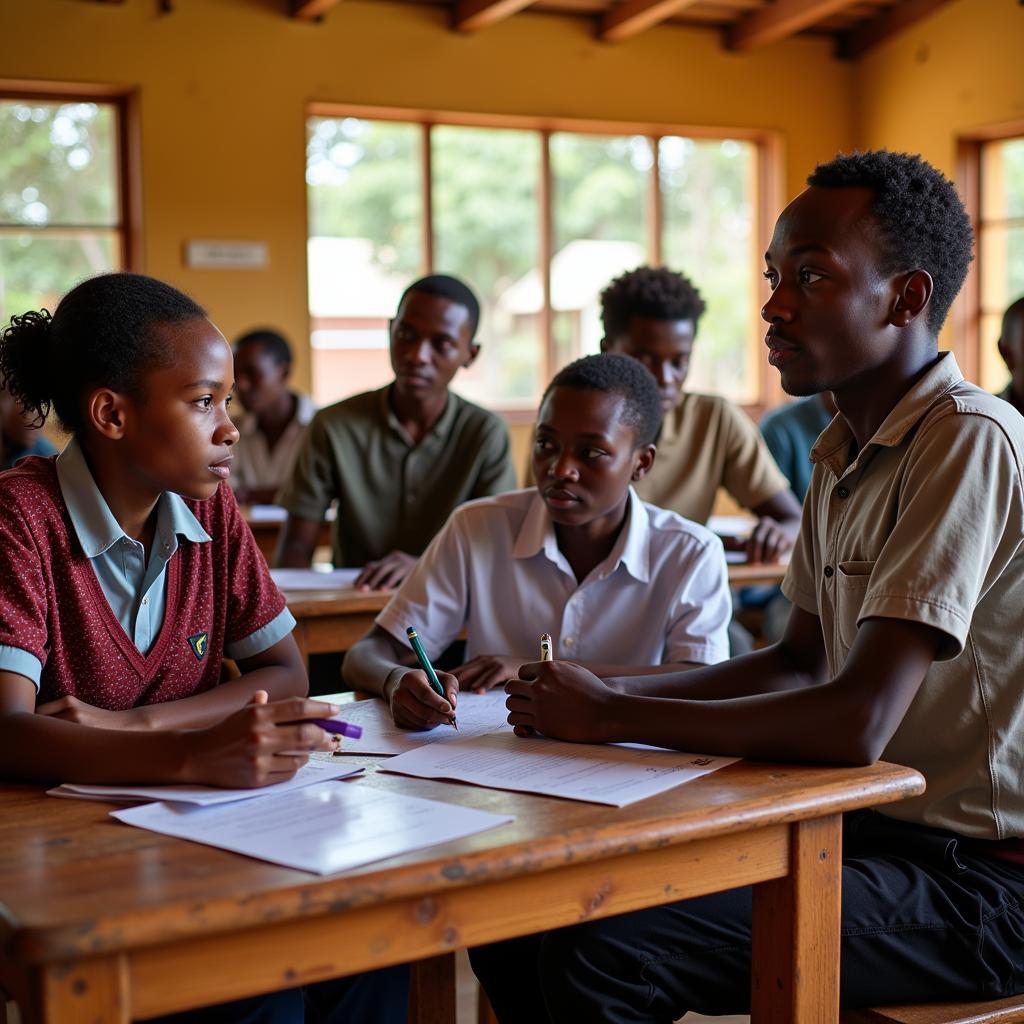African Child Day 2018: Celebrating and Empowering the Future of Africa
African Child Day, observed annually on June 16th, is a significant occasion dedicated to raising awareness about the challenges and opportunities facing children across the African continent. This day serves as a powerful reminder of the need to protect, nurture, and empower young Africans, recognizing their crucial role in shaping a brighter future for their communities and the entire continent.
Why is African Child Day so Important?
African Child Day holds immense importance because it highlights the unique challenges and aspirations of children living in Africa. This day provides a platform to:
- Advocate for the rights and well-being of children: African children often face various hardships, including poverty, malnutrition, lack of access to education, and exposure to conflict and violence. This day promotes awareness about these issues and calls for action to improve their lives.
- Promote the education and empowerment of children: Investing in education is crucial for the development of any nation, and this is especially true in Africa. African Child Day emphasizes the importance of providing quality education to children, equipping them with the skills and knowledge they need to thrive.
- Celebrate the resilience and potential of African youth: Despite the challenges they face, African children are resilient, resourceful, and full of hope for the future. This day celebrates their achievements and recognizes their potential to contribute to a brighter future for the continent.
The History of African Child Day
African Child Day was established by the Organization of African Unity (OAU), now the African Union (AU), in 1991. The day commemorates the tragic events of June 16, 1976, in Soweto, South Africa, when police opened fire on students protesting against the apartheid regime’s discriminatory education policies. This event became a symbol of the struggle for children’s rights and education in Africa, leading to the establishment of African Child Day as a powerful reminder of the ongoing need to protect and empower children across the continent.
Themes and Activities for African Child Day
Each year, African Child Day is celebrated under a specific theme. The theme for 2018 was “Protecting Children in the Digital World. This theme underscores the importance of equipping children with the knowledge and skills to navigate the digital landscape safely and responsibly. Activities often include:
- Public awareness campaigns: Educational workshops, seminars, and public rallies are held to raise awareness about the challenges and opportunities facing children in Africa.
- Community events: Schools, organizations, and communities organize events such as cultural performances, art exhibitions, and sports competitions to celebrate children and highlight their contributions.
- Policy discussions: Government officials, civil society organizations, and other stakeholders come together to discuss policies and programs aimed at improving the lives of African children.
The Importance of Education in Empowering African Children
Education is the cornerstone of empowerment for African children. Access to quality education provides them with the skills and knowledge they need to:
- Break the cycle of poverty: Education empowers children to secure employment, earn a living, and lift themselves and their families out of poverty.
- Become active citizens: Education fosters critical thinking, problem-solving abilities, and civic engagement, enabling children to contribute to their communities and advocate for positive change.
- Develop their full potential: Education allows children to explore their interests, develop their talents, and pursue their dreams, ensuring that they can reach their full potential and contribute to society.
Celebrating the Progress Made
While significant challenges remain, there have been positive developments in the lives of African children in recent years. These include:
- Increased access to education: Many countries have made progress in expanding access to primary and secondary education for children.
- Improved healthcare: Significant strides have been made in reducing child mortality rates and improving access to essential healthcare services.
- Greater awareness of children’s rights: The international community has become increasingly aware of the importance of protecting children’s rights, leading to improved legislation and policies in many African countries.
The Role of the International Community
The international community plays a crucial role in supporting African children. Developed nations and international organizations can contribute by:
- Providing financial aid: Supporting education, healthcare, and other essential services for children in Africa.
- Sharing expertise: Sharing best practices and innovative solutions for addressing the challenges faced by African children.
- Promoting collaboration: Working with governments, civil society organizations, and communities to implement effective programs for children.
The Future of African Children: Hope and Opportunity
The future of Africa rests on the shoulders of its children. Their well-being, education, and empowerment are essential for the continent’s sustainable development. African Child Day reminds us to:
- Invest in the future of Africa: By supporting education, healthcare, and other essential services for children.
- Empower children to become agents of change: By fostering their creativity, critical thinking, and leadership skills.
- Celebrate the diversity and potential of African children: By recognizing their unique talents, aspirations, and contributions to society.
FAQs
Q: What are some of the key challenges facing African children?
- A: Challenges include poverty, lack of access to education and healthcare, child labor, exposure to conflict and violence, and vulnerability to exploitation.
Q: What are some ways I can support African children?
- A: You can donate to charities supporting children in Africa, volunteer your time at local organizations, advocate for policies that protect children’s rights, or raise awareness about the issues facing African children in your community.
Q: What is the role of technology in empowering African children?
- A: Technology can play a vital role in providing children with access to education, healthcare, and other essential services. It can also help connect them to opportunities and empower them to become active citizens in the digital world.
Q: What are some inspirational stories of African children overcoming challenges?
- A: Many stories highlight the resilience and achievements of African children. For example, there are numerous young entrepreneurs who are creating innovative solutions to address local challenges, or young activists who are advocating for social change.
Q: How can we ensure that all African children have access to quality education?
- A: Providing access to quality education for all children requires a multi-faceted approach, including increasing investment in education, building more schools and training teachers, promoting gender equality in education, and addressing the challenges of poverty and inequality.
African Child Day is a powerful reminder of the importance of investing in the future of Africa by empowering its children. By recognizing their challenges, celebrating their achievements, and working together to create a brighter future for them, we can ensure that they reach their full potential and contribute to the development of a prosperous and equitable Africa.




